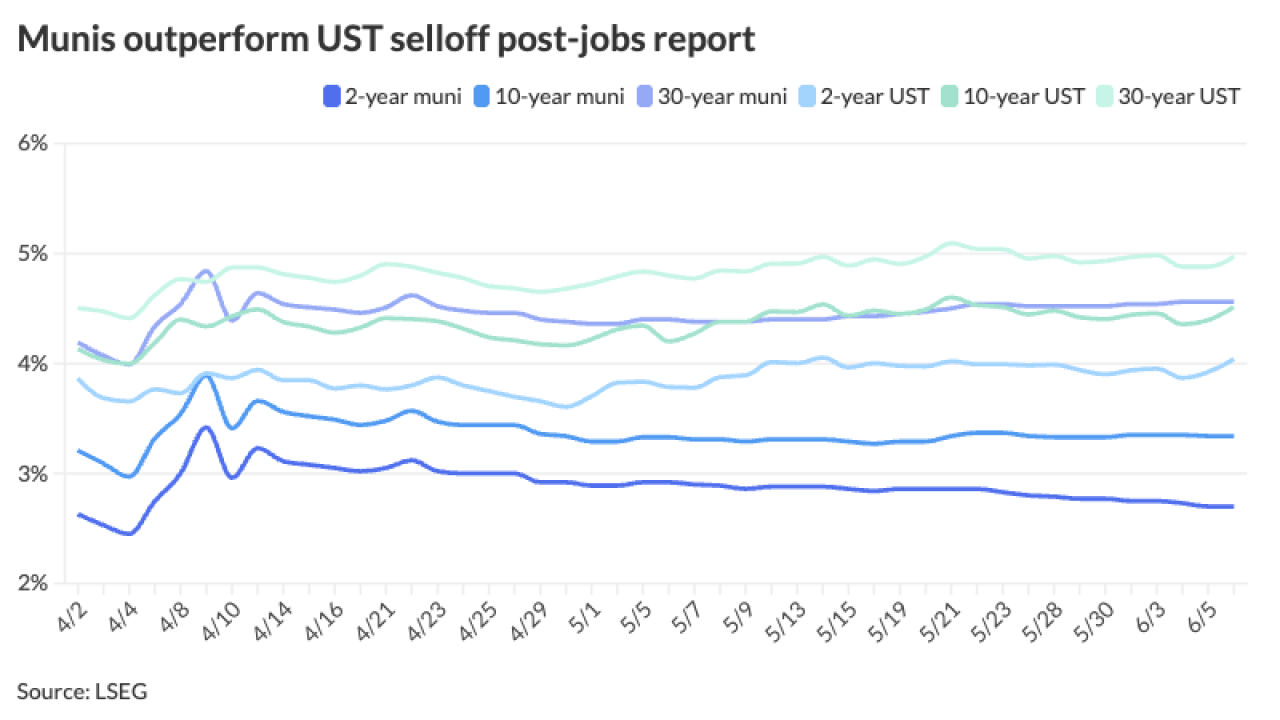
New York's Metropolitan Transportation Authority expects to save roughly $152 million in interest from its planned $1 billion sale of Hudson Yards lease securitization bonds, chief financial officer Robert Foran said Wednesday.
The savings is among $801 million of reduced debt-service expenses since the authority's February release of its rolling four-year financial plan, Foran told board members at a
The 18-month delay in state approval for the $29 billion capital program for 2015 to 2019 partially accounts for the re-estimates, according to Foran, because it put some borrowing on hold. Delayed issuance dropped debt expenses by $419 million over the four-year plan.
"It's really a timing issue," he said. "We did not sell as much debt as we originally planned."
Interest-rate savings and lower projected interest rates combined for roughly $231 million in savings, Foran added.
"We've been doing a number of refundings to take advantage of lower interest rates."
Last month, the board authorized a bond offering to monetize a portion of the 99-year lease payments from Hudson rail yards commercial and residential development, which included an extension of the No. 7 subway line from Times Square.
The MTA would offer the obligations under a trust agreement with Wells Fargo Bank as custodian, most likely as a 40-year bond.
The authority, one of the largest municipal issuers with about $37 billion in debt, released its $15.6 billion preliminary budget for calendar year 2017 on Wednesday. The board will hold a final vote on the budget in December.
In addition, Foran briefed board members on the authority's rolling four-year financial plan.
Re-estimates and other changes are nearly $700 million favorable through 2019, according to Foran. Worsening results over that period are $430 million in higher health and fringe benefit expenses; $345 million in higher pension estimates and $182 million in lower farebox revenue.
Foran and MTA Chairman Thomas Prendergast said increasing recurring annual cost savings to $2 billion by 2020 is essential to curb a deficit projected at $371 million by then. The financial plan is balanced through 2019.
"If savings targets are not achieved and projected fare increases are not implemented, our financial situation becomes untenable," said Foran.
He said $566 million of debt-service savings provide additional funding for project costs not in the approved capital program – for example, engineering and federal full-funding grant agreement matching funds for the Second Avenue Subway megaproject. MTA officials are scrambling to open the first phase of that project by Dec. 31.
The authority, said Foran, is also accelerating $200 million of pay-as-you-go funding by three years, saving $39 million in debt service.
The authority intends to conduct public hearings next year on possible fare and toll increases, with biennial hikes looming for 2017 and 2019 – 2% annually and indexed to inflation.
"It's a projected fare increased as part of a financial plan as opposed to yes, we're going to have fare increases," Prendergast told reporters.
"In November we'll have an update to this financial plan. We'll see what our needs are and if we do have needs for a fare increase, the staff will make recommendations for hearings to be held and then decisions to be made by the board based upon that input."
Other challenges, said Foran, include expiring labor contracts, with a new round to begin in February; possible interest rate increases; general economic conditions and the need to use non-recurring revenues and-or favorable budget variances to reduce unfunded pension and other post-employment benefit liabilities.





